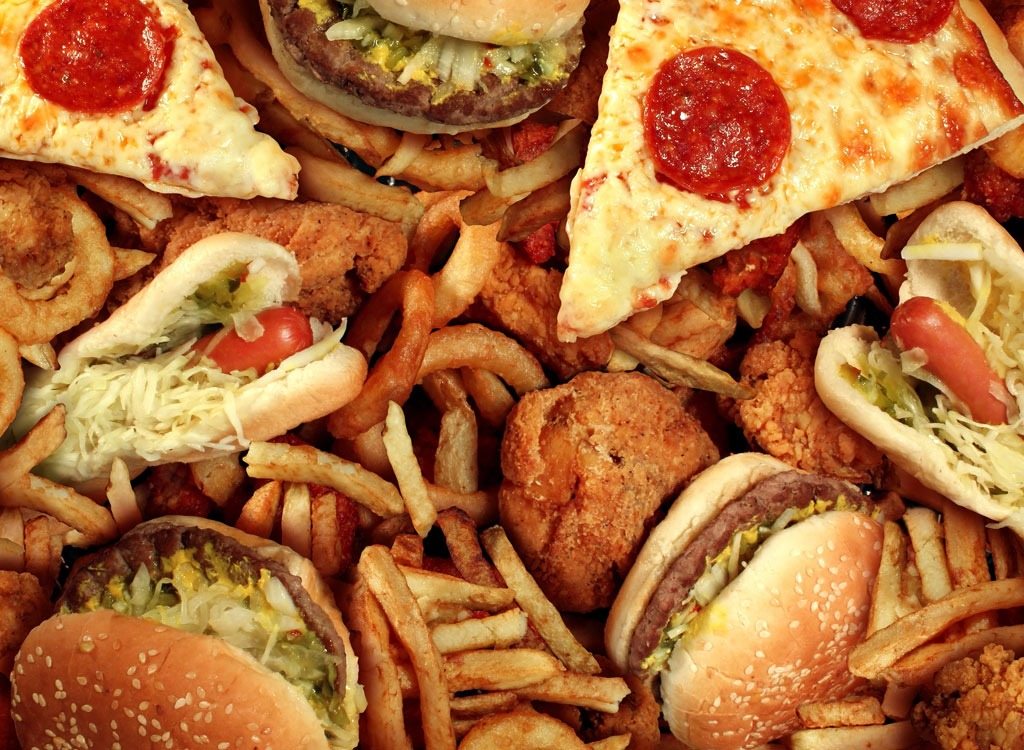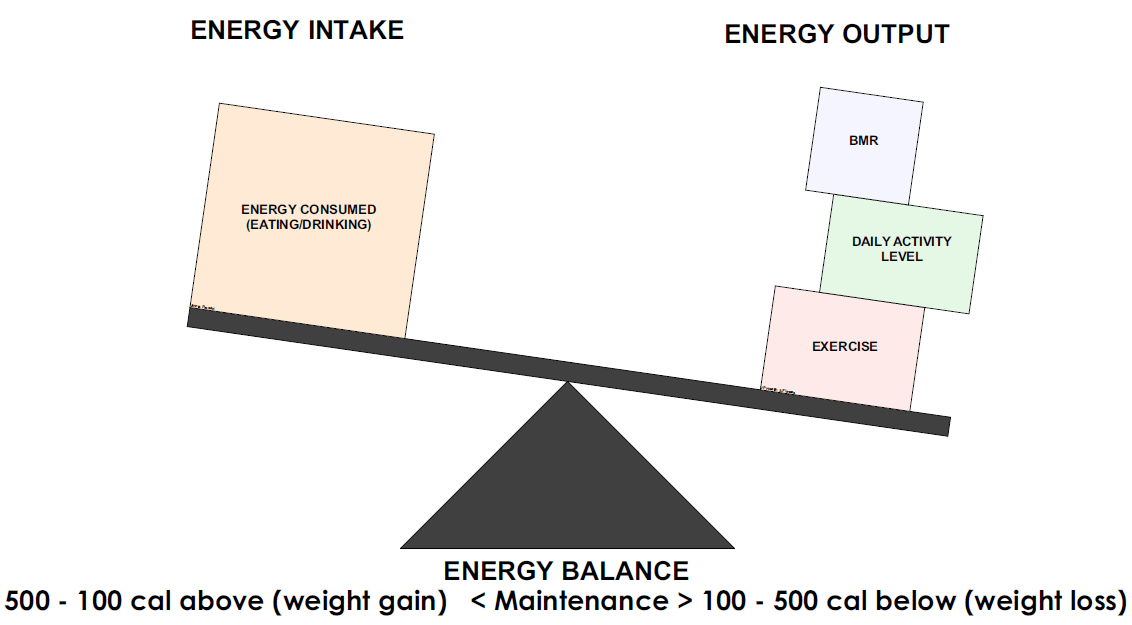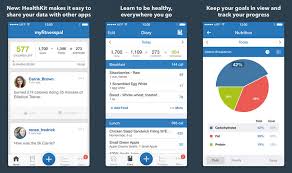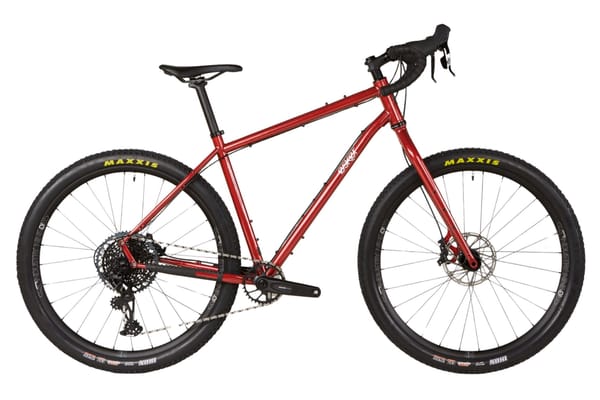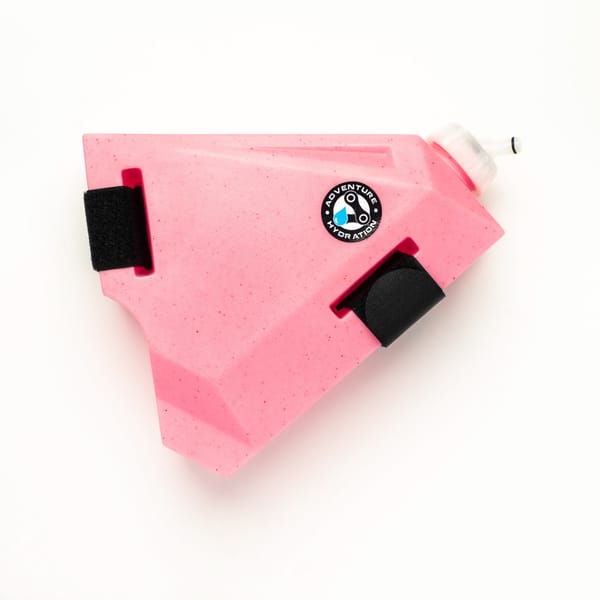Energy Balance and Your Body Weight
Energy balance and the effect on your body weight is the most important topic to understand whether your goal is to maintain, gain or lose body weight. Weight loss and weight gain are, in my opinion, are extremely simple topics that have been befuddled with pseudoscience, misinformation, and other bullcrap. I’ve heard it all:
- I’m going on a special diet where I only eat X
- I’m going on a special diet where I only eat at Y times
- I just can’t put on any weight
- I just can’t lose any weight
These types of statements fly in the face of scientific fact. The Law of Thermodynamics would like a word with you if you think you are eating significantly less and are still unable to lose weight, that or your body is the key to free energy.
Unless you energy balance equation is tilted the right way, your goals to gain or lose weight will be unproductive. To put that in layman’s terms; if you consume more calories than you burn, you will gain weight; conversely, if you consume fewer calories than you burn, you will lose weight. It doesn’t matter how hard you workout or how much protein you eat, if you don’t consume more calories than you burn, you will not gain weight. Similarly, you can work-out all day long and eat “healthy” foods, but at the end of the day, if you consume more calories than you burn, you will not lose weight.
Energy Balance Defined
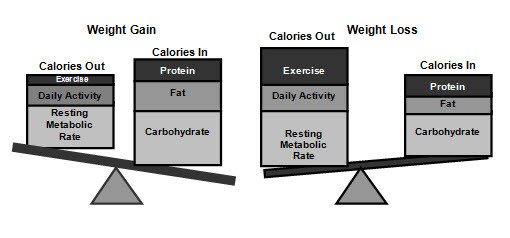
Think of your body as a car. If you want to drive your car, you have to put gas in it. Similarly, anything your body does requires energy which comes from ingested food or from reserved energy stores in the body (fat). The term “energy balance” describes the coaction of energy expenditure vs. energy input. The energy balance equation, like any system, is governed by the Laws of Thermodynamics which states that energy is neither created nor destroyed. Simply put, if you expend more calories than you take in through eating you will lose weight, physics guarantees it. A “positive energy balance” means more energy is taken in than burned, so there will be weight gain. A “negative energy balance” means that more energy is burned than taken in so there will be weight loss. If your energy balance equation is balanced equally, your weight will remain unchanged.
Energy In
To better understand the energy balance equation, let’s look at its components beginning with energy in. As we said earlier, your body is a machine that requires energy to perform all its functions. Food is our source of energy. Food provides us with macronutrients (carbohydrates, proteins, and fats) that give the body energy. The body breaks down macronutrients into smaller components through digestion and then absorbs them in the small intestine. Those nutrients enter the bloodstream where they are further broken down to be used as energy. Remember, thermodynamics tells us what happens from here. The nutrients that aren’t used to provide you body with energy now don’t simply disappear. They are converted and stored as fat.
Carbohydrates:
Carbohydrates are absorbed into the body as monosaccharides and then end up as glucose (sugar). If there’s an excess of glucose, it will get stored first as glycogen in liver and muscle stores. Once glycogen stores are full, the glucose is stored as fat.
Fats:
Fats are absorbed into the body as fatty acids and glycerol. Fatty acids/glycerol that is not used is stored as fat.
Protein:
Proteins are absorbed into the body as amino acids. If there is a positive energy balance and an excess of amino acids, the body will use what is needed to replace daily losses, then it increases protein oxidation. Leftover amino acids are stored as fat. If there is a negative energy balance, amino acids can be used as fuel.
The macronutrients all end up as fat if the body does not use them. It’s basic physiology. Our bodies want to store energy for the future. For most of human history, calories were not so readily available so our bodies got very efficient at using energy and storing excess as fat to help us survive when food wasn’t around.
It doesn’t matter how “healthy” or “clean” you eat if you take in too many calories. You could eat chicken breast all day long and still gain fat. So when you hear someone say “carbs make you fat” ignore them.
This piece of the energy balance equation is the one you have the most control over, we’ll go over that later.
Energy Out
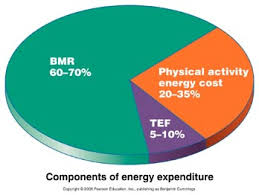
So what does the body do with all the food you put in it? The energy out equation is composed of 4 categories: basal metabolism, physical activity, thermic effect of food (TEF), and adaptive thermogenesis:
1. Basal Metabolism
Basal Metabolic Rate (BMR) is the rate of energy expenditure by the body when performing its necessary but mostly unseen functions. This the metabolic activity that supports the basic processes of life. Think of these as the calories you would burn if you simply sat in bed all day and watched TV. You need this energy to breath, pump blood, maintain body temperature, make new cells, maintain organ function, etc… You might think that this would make up a relatively small portion of your daily total energy expenditure. You’d be wrong. Approximately 2/3 of the total energy a person expends each day simply goes to keeping the lights on.
You can use the following calculator to find your Basal Metabolic Rate:
As a 390-year-old, 6-foot 2-inch, 195-pound male I burn about 2000 calories a day whether I get out of bed or not.
2. Physical Activity
This is the energy expended during voluntary movement. When you move skeletal muscle does work and work requires energy. Likewise, using muscle requires support systems like the heart to do more work as well. The amount of energy needed for any activity depends on body weight and the activity being done. This component of total energy expenditure is the second most controllable right behind the energy in. The more physical activity you do, the more energy you will burn.
3. Thermic Effect of food (TEF)
Digesting and absorbing food requires energy in and of itself. The energy used in TEF is approximately 10% of the total energy intake of food.
4. Adaptive Thermogenesis
When the body is adapting to extreme changes in the environment energy is consumed. When the body adapts to a stressor, energy is used to build tissue and produce hormones.
The relationship between energy in and energy out
The body needs a lot of energy to perform the activities in the energy out portion of the equation. But, you really only have control over one part, physical activity. As we covered, food enters your body and is broken down into the components it can use for energy and any extra gets stored as fat, this is where we have the most control. Let’s break down the why:
According to this exercise list from Harvard Medical School, a general 30-minute strength training session burns an average of 133 calories for a 185 pound person. An Oreo has 45 calories. So a person could cut three Oreos out of their diet or lift weights for 30-minutes and end up in the same place. Let me ask you, which one is easier?
While exercise is an important part of general health, building muscle or getting better at a sport, it is not a great way to lose weight. It is much easier to cut calories and lose weight by eating healthier. When we eat fewer calories than we need for our energy output, energy has to come from somewhere. So, the body turns to glycogen and fat stores.
Wrapping Up
See why it’s so crazy when people say “they just can’t lose weight?”
Step one is to determine how many calories you are eating and to be honest. Often, when people tell me they can’t lose weight I find it’s because they are terrible at keeping track of the calories they are putting into their body. All it takes to go from a caloric deficit to caloric excess is a small bag of chips or a few cookies, you can literally ruin your diet and gain weight in 60-seconds a day. If you track your 3 square meals and come in at your calorie goal but drink a latte, eat a donut at work and have two beers after dinner outside of your count, you will gain weight.
I recommend using a calorie tracker to track everything you put in your body. There are a ton of options out there, I use MyFitnessPal because it’s easy to use and available both online and on iOS. They have a huge food database which makes inputting foods super simple.
You will also hear people new to weight lifting complain about not being able to put muscle on. Often they report “eating a ton.” But when you review their diet, they are often eating 2-3 medium sized meals a day without enough calories to support daily requirements let alone build muscle.
Similarly, we all have heard the complaint “I have a really slow metabolism.” Sure, it’s possible. Some people have lower basal metabolic rates than others. At most, a slow metabolism means a couple hundred calories difference in BMR, which means he or she can’t eat quite as much each day if they want to lose weight. It does not mean weight loss is impossible, they are still eating more than their body needs.
Final Word on Energy Balance and Body Weight
The most important thing to understand is that body weight changes do not happen overnight. It takes a consistent state of negative energy balance to lose weight, the inverse is true for gain. Although not perfect a 3500 calorie estimate per pound of body weight gets us within the realm of what is needed to lose or gain weight. 3500 calories is a lot of food or exercise. If you want to lose the absolute maximum amount of weight you should target in a week’s time (3 pounds per week) you have to cut 10,500 calories out of the week’s energy input. That is no small feat. You could ride your bike at 20 MPH for 10 hours if your 200 pounds. Or you could cut out a lot of food, for reference this is what 10,000 calories looks like:
Just remember: if you eat more energy than you burn, you will gain weight; if you eat less energy than you burn, you will lose weight; and if you take in the same as you burn, your weight will stay the same. It really is that simple.


